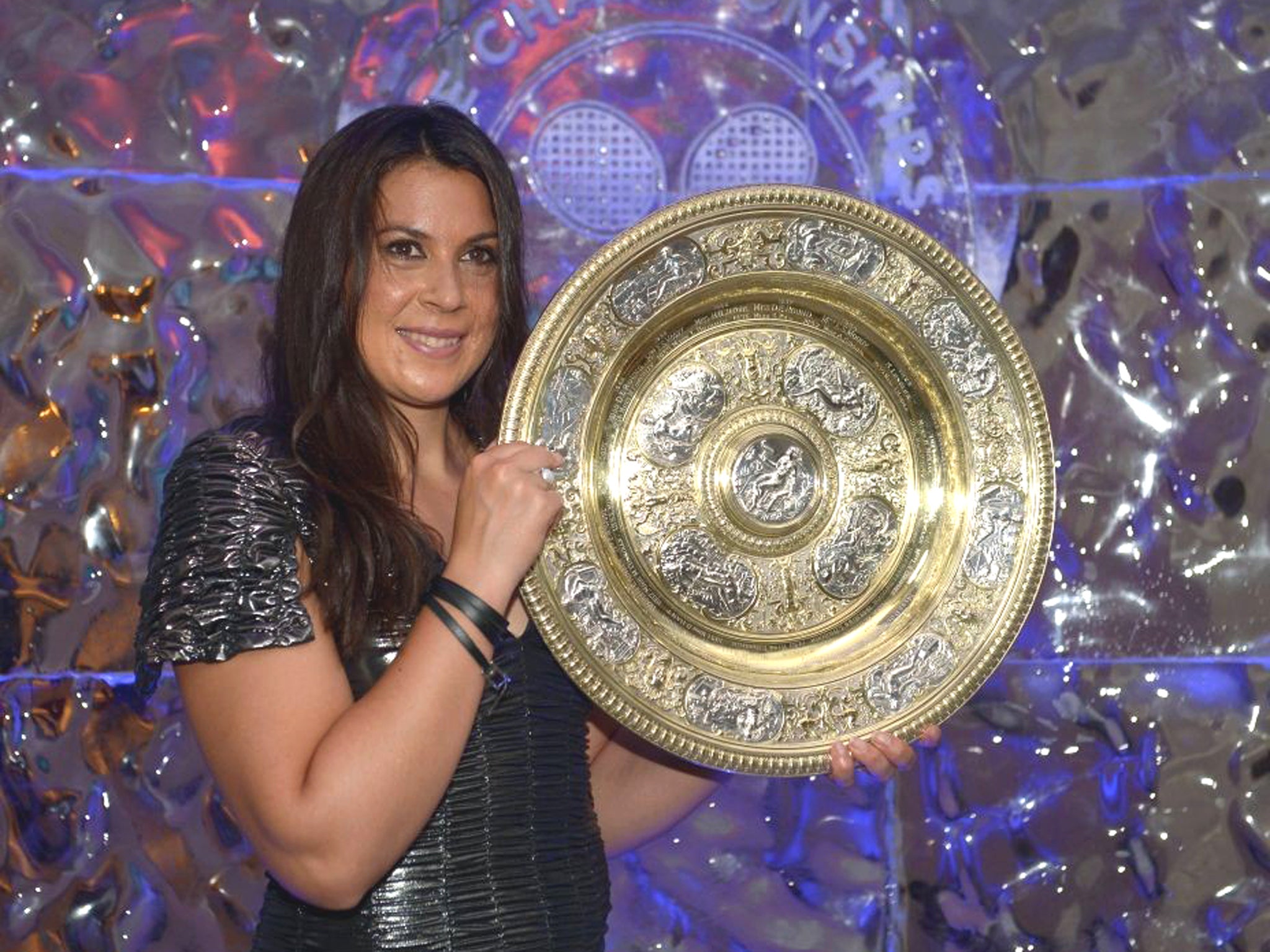Bartoli brushed off those clumsy comments – so why can’t we?
In the hysteria that followed Inverdale’s remark, it occurred to no one that perhaps he was making a sensible point about our looks-obsessed age

It is a reliable fact of 21st-century life that when there is general outrage about something a public figure has said, a bigger source of insecurity is being uncomfortably exposed. As the feathers fly, you can occasionally glimpse the skipping demon of hypocrisy in the thick of it all.
A BBC presenter, John Inverdale, has commented on the looks of Marion Bartoli, the women’s singles champion at Wimbledon, asking listeners: “Do you think Bartoli’s dad told her when she was little, ‘You’re never going to be a looker, you’ll never be Sharapova, so you have to be scrappy and fight’?”
It was clumsy, it was ungallant, and it managed the unusual feat of potentially annoying three people, not least Maria Sharapova. Quite rightly, Inverdale wrote to explain himself to Bartoli, pictured, and the BBC issued a low-key apology for Inverdale’s insensitivity.
It is the reaction to that insensitivity which is more interesting.
Scenting blood, the great army of the easily outraged took to Twitter, calling for the broadcaster to be sacked. He was a disgrace, a sexist boor, a dinosaur. One columnist, severely underestimating the French player’s resilience, announced that her childhood dream had been spoilt, and that Inverdale should be replaced forthwith by Clare Balding.
Feeling offended, of course, is one of modern life’s great pleasures.
It makes everyone feel both culturally engaged and morally superior. In the hue and cry that followed Inverdale’s remark, it seemed to occur to no one that, had he chosen his words rather more carefully, he was making a sensible point about our looks-obsessed age.
Put another way, he was asking whether Monsieur Bartoli might once have told the young Marion that the modern world places an absurd value on a person’s face and figure, particularly if they happen to be in the public eye. None of that idiocy matters if a young person has talent and determination.
Why is that advice not given more often? When, for example, we see page after page of newspapers and magazines featuring pictures of comely faces and slim bodies, whether at Wimbledon or lying in the sun or receiving A-level results. Or when John Humphrys asks Ed Miliband whether he is “too ugly”, political sketch-writers make jokes about fat MPs, and voters in the last election are influenced by the looks of candidates. Or when a stand-up comic makes jokes about the face of an acceptably mockable public figure. Or when TV presenters are hired, or contestants for reality shows like The Apprentice or Big Brother are chosen.
In this context, in which everyone is allowing themselves in one way or another to be influenced by looks, children certainly need to be reminded that your physical appearance matters less than who you are and what you do.
That is now, as I once discovered, an unfashionable message. Having taken part in an event at a children’s reading festival, I was talking to a bright, cheerful 11-year-old reader who told me that, when she grew up, she had decided she wanted to be a writer, or maybe a lawyer. The problem, she said, was her parents: they were nagging her to be a model.
What the row over Inverdale’s remarks has revealed is that there is indeed a connection between the cultural obsession with attractiveness and the nastier kind of male sexism. When newspapers and magazines objectify tennis players, taking a beady, wet-lipped interest in their lissom figures, they are in many ways playing the same unpleasant game as those making oafish comments.
Public life may be more and more like a beauty pageant, but any sensible father will tell his daughter (or son) that, beside real success and character, looks are nothing more than a silly sideshow. That was what Inverdale was presumably trying to say, and the admirable Bartoli agreed. “It doesn’t matter, honestly,” she said. “I am not a blonde, yes. That is a fact.”
Which, being translated, means: get over it.
At last: an old-fashioned summer
There is something unusual in the air, and it is not just the strange sensation of the British winning sporting events which we have become accustomed to losing.
Something else, redolent of the past, is happening. We are experiencing an old-fashioned summer. The cold, wet months of spring have meant that nature is around three weeks behind itself. The sun shines on a lush landscape.
Trees and plants which normally would have finished blooming in June are still in full flower. Mayflies, who have usually gone by late spring, are still here.
Because there is so much more water in the soil, everything is greener, and the air itself feels positively balmy.
For these few days at least, we can enjoy the kind of English summer associated with the gentle, golden past of The Go-Between or Swallows and Amazons. It is as rare as a British victory on the last day of Wimbledon.
Twitter: @TerenceBlacker

Join our commenting forum
Join thought-provoking conversations, follow other Independent readers and see their replies